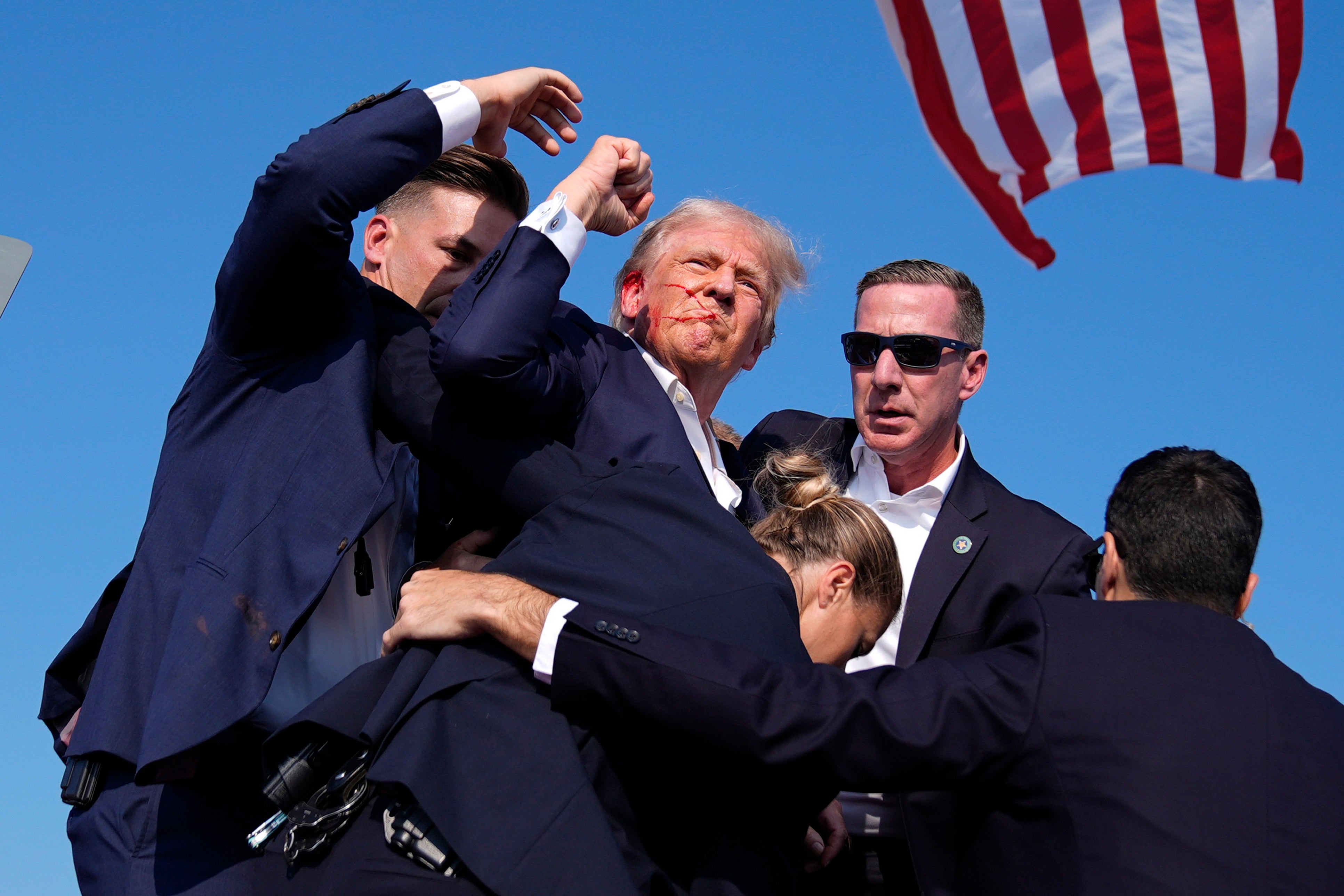In the years leading up to the attempted assassination of Donald Trump at a rally in Pennsylvania this summer, the number of veteran Secret Service agents sharply declined, while more rookies filled the ranks, according to a Washington Post analysis.
Beginning in 2015, agents with less than five years of experience rose from about 15 percent to 40 percent of the elite security agency, while staff with 11 to 20 years of experience declined from more than 50 percent of the Secret Service to making up about 25 percent.
One of those junior agents was tasked with leading security planning around the Butler, Pennsylvania, rally in July when gunman Matthew Crooks nearly killed Donald Trump, grazing the then-candidate’s ear with a bullet.
The agent joined the Secret Service just four years before the shooting, and had only been on the president’s protective detail since 2023.
The Secret Service’s management of security at the Pennsylvania rally, where Crooks was able to fire on Trump from a nearby rooftop with a clear view of the event stage, has come under heavy scrutiny.
After the shooting, Secret Service director Kimberly Cheatle resigned in late July.

Crooks was spotted behaving suspiciously nearly an hour and a half before he fired on Trump, but agents failed to liase with police and stop the attack.
The Secret Service has a “corrosive” culture and a “troubling lack of critical thinking,” which contributed to recent security threats and assassination attempts against Trump during the campaign, a scathing report for the Department of Homeland Security found in October.
The recent scrutiny builds on calls for increased training, hiring, and funding at the agency dating back a decade, after a series of security failures during the Obama administration.
In 2014, a White House-backed investigation recommended agents who protect the president spend a quarter of their time in training, though government records suggest these agents spent between three and seven percent of their time on such preparation. Probes of the Secret Service all called on the agency to hire more personnel to free up agents for more regular training.
A Secret Service official told the Post that the agency had made numerous changes since those days, but needed more funding than the modest five percent increase in its budget from 2017 to 2024.
“Resource constraints hindered our ability to fully implement all of the panel’s recommendations,” Secret Service spokesman Anthony Guglielmi told the paper, calling on more resources “so we can finally move the Secret Service to a more sustainable training model.”







